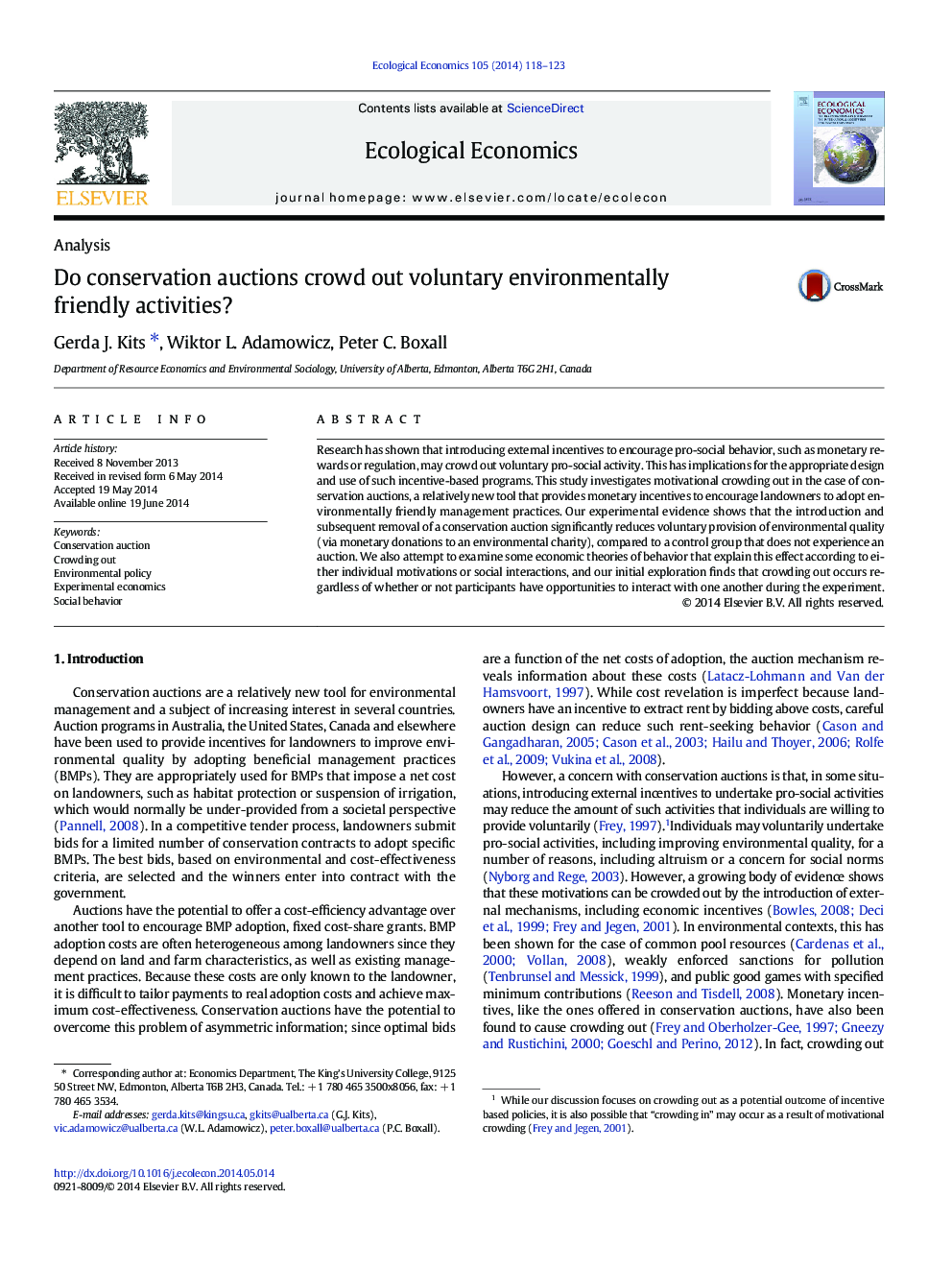| Article ID | Journal | Published Year | Pages | File Type |
|---|---|---|---|---|
| 5049709 | Ecological Economics | 2014 | 6 Pages |
â¢Experiment participants made voluntary donations to an environmental charity.â¢A simulated conservation auction was introduced and then removed.â¢Those who experienced the auction subsequently reduced their voluntary donations.â¢This occurred regardless of whether participants could interact with one another.
Research has shown that introducing external incentives to encourage pro-social behavior, such as monetary rewards or regulation, may crowd out voluntary pro-social activity. This has implications for the appropriate design and use of such incentive-based programs. This study investigates motivational crowding out in the case of conservation auctions, a relatively new tool that provides monetary incentives to encourage landowners to adopt environmentally friendly management practices. Our experimental evidence shows that the introduction and subsequent removal of a conservation auction significantly reduces voluntary provision of environmental quality (via monetary donations to an environmental charity), compared to a control group that does not experience an auction. We also attempt to examine some economic theories of behavior that explain this effect according to either individual motivations or social interactions, and our initial exploration finds that crowding out occurs regardless of whether or not participants have opportunities to interact with one another during the experiment.
